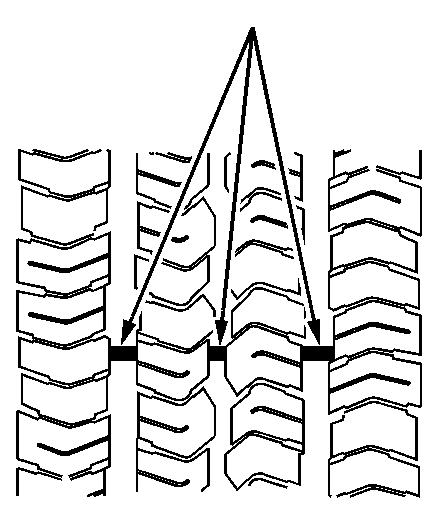Various factors, such as maintenance, temperatures, driving speeds, vehicle
loading, and road conditions, influence when you need new tires.

One way to tell when it is time for new tires is to check the treadwear indicators,
which appear when your tires have only 1/16 inch (1.6 mm) or less of
tread remaining. Some commercial truck tires may not have treadwear indicators.
You need new tires if any of the following statements are true:
| • | You can see the indicators at three or more places around the tire. |
| • | You can see cord or fabric showing through the tire's rubber. |
| • | The tread or sidewall is cracked, cut, or snagged deep enough to show
cord or fabric. |
| • | The tire has a bump, bulge, or split. |
| • | The tire has a puncture, cut, or other damage that cannot be repaired
well because of the size or location of the damage. |
The rubber in tires degrades over time, even if they are not being used. This
is also true for the spare tire, if your vehicle has one. Multiple conditions
affect how fast this aging takes place, including temperatures, loading conditions,
and inflation pressure maintenance. With proper care and maintenance tires will typically
wear out before they degrade due to age. If you are unsure about the need to replace
your tires as they get older, consult the tire manufacturer for more information.
